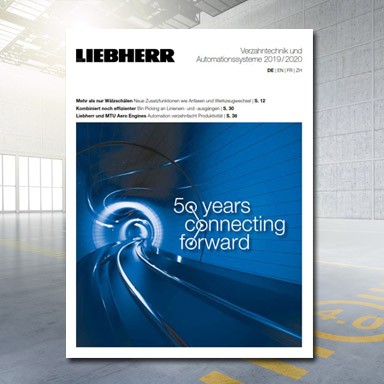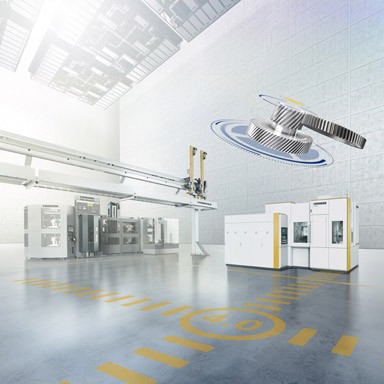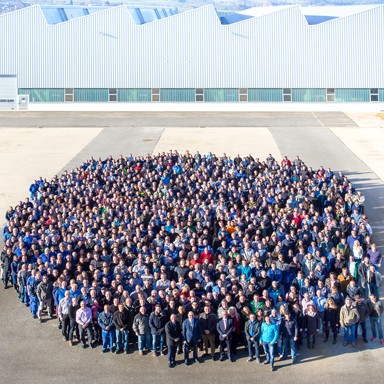
From prototype to series production
It begins with an idea. But designers often have a long way to go before a perfect workpiece is made using a suitable manufacturing process. It is good that reliable partners such as Liebherr participate and share their experiences.
Every one of our customers has a development department with good ideas. But getting these parts to series production economically, and of sufficient quality, is a challenge for which many companies need partners.
“Every one of our customers has a development department with good ideas”, reports Dr. Oliver Winkel, Head of Technology Application. “But getting these parts to series production economically, and of sufficient quality, is a challenge for which many companies need partners.” It doesn’t matter whether these are improvements to existing parts, or new developments. Converting a CAD drawing to a machine, and later to the production environment, is always challenging.
“Together with one of the leading truck manufacturers, we have improved an already existing gearbox by refining the tooth flank surfaces to achieve greater efficiency and a longer service life. To do this, collision gears also had to be polished with small grinding worms”, says Dr. Andreas Mehr, in providing an example of the improvement process of the technology at Liebherr-Verzahntechnik GmbH. “This was a joint learning curve, during which we further developed the process from manufacturing the first prototypes under “laboratory conditions” to largescale series production.” In the end, the polished gears made it possible to significantly upgrade the gearbox.
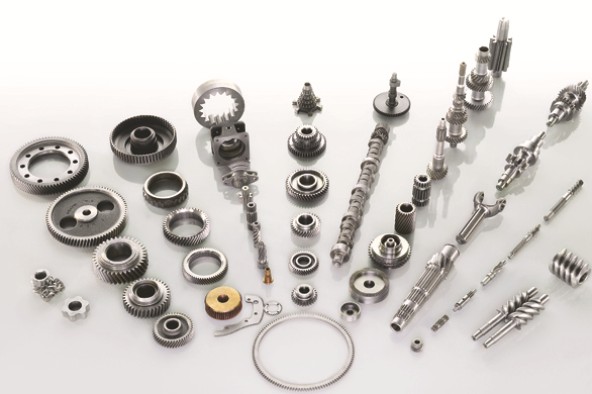
From gears to sprockets
From time to time, the experts of Liebherr-Verzahntechnik GmbH have to venture into unknown territory. “We utilised our gear experience for a customer to shape non circular gears, into sprockets on a crank shaft, and then tested the necessary prototypes on Liebherr machines”, explains Bernd Rösch, Head of the Testing Department. Thorough tests are extremely important, particularly at the limits, emphasises the expert. “Some effects are difficult to estimate and foresee. Customers then gladly visit us during the test phase, where the most advanced machines and technologies are available.”
Liebherr engineers learn a great deal about the component design and their application in the course of such activities – knowledge that in turn can be used in machine development. Aside from the machine, the processing knowledge of the experts is also in great demand. Oliver Winkel: “Let’s take the trend towards higher power densities as an example. With double helical gears, we eventually reach the point at which gear hobbing no longer works, and the manufacturing process has to be changed to 5-axes milling.”
Or another example from practice: A customer wanted to substitute honing for gear hobbing. In a benchmark process with various bidders, Liebherr was able to assert itself with its engineering know-how as the new partner.
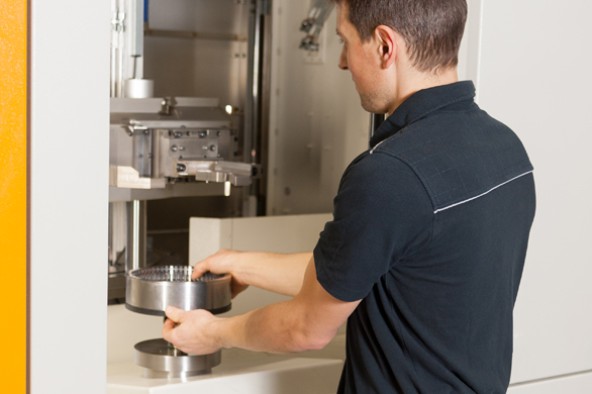
Customers benefit from the know-how of Liebherr employees during the development phase
Design of reliable processes
“Sometimes, it is also a matter of process reliability. One of our customers wanted to relocate manufacturing resources for cycloid gears from the USA to low wage countries. The process was very complicated, however, with many steps and frequent readjustments. Therefore, a new, more reliable process needed to be established for the new sites”, says Andreas Mehr about a different case. Liebherr already had a reputation as a reliable partner, and subsequently carried out trials with hobbed gears. Together, an alternative to the existing profile grinding method was found and implemented in this way.
Independent of how the requirements present themselves:
Customers have access to many years of experience and expert resources with Liebherr as a partner and, as a result, are able to build prototypes faster and take them more reliably to series production.

